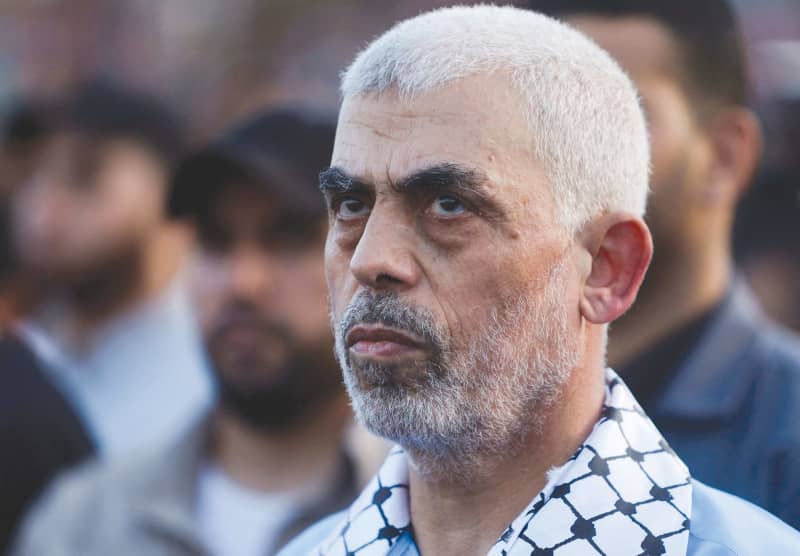Yahoo is using AI to generate takeaways from this article. This means the info may not always match what’s in the article. Reporting mistakes helps us improve the experience.Generate Key Takeaways
“Sinwar saw himself as a rabbi-like figure,” according to Yaari. “Someone deeply knowledgeable about Israeli affairs.”
Veteran Arab affairs commentator Ehud Yaari recently disclosed that he maintained indirect contact with Hamas leader Yahya Sinwar, the man widely regarded as the architect of the October 7 terrorist attacks, in an interview on Nadav Perry’s podcast in early July.
Yaari explained that the correspondence began after the outbreak of the war and was facilitated through a mediator who identified himself as a member of the organization.
“Sinwar saw himself as a rabbi-like figure,” according to Yaari. “Someone deeply knowledgeable about Israeli affairs. He learned Hebrew, read books about Zionism, Ben-Gurion, Herzl – everything you can imagine. He believed he had successfully identified Israel’s weak points.”
Yaari emphasized that the correspondence was neither daily nor regular, but rather took place sporadically. He said the initiative originated from Sinwar himself, who reached out through a third-party affiliate of Hamas. “He didn’t give me scoops or tell me things I didn’t already know, but it was important to him to convey messages,” he explained.
Sinwar wanted to convey Hamas’s ‘sense of despair’
One of the central messages Sinwar wanted to deliver was Hamas’s sense of despair, according to Yaari: “His approach was – we have nothing to lose. That was his exact phrasing: ‘We have nothing to lose, and that’s why we did what we did.’”
Yahya Sinwar walks through Gaza ruins. (credit: Maariv Online)
Sinwar was killed in October of last year after months of pursuit. For a long period, he managed to evade Israel’s and its allies’ technological and intelligence capabilities by relying on primitive, untraceable means of communication and placing his trust only in his closest associates.
Sinwar controlled an extensive network of underground tunnels that served as command centers and hiding places.
Despite offers from Arab mediators to help him escape in exchange for agreeing to release hostages, Sinwar rejected them. He clung to the hope that the confrontation he had ignited would draw Iran and Hezbollah into a regional war against Israel.

